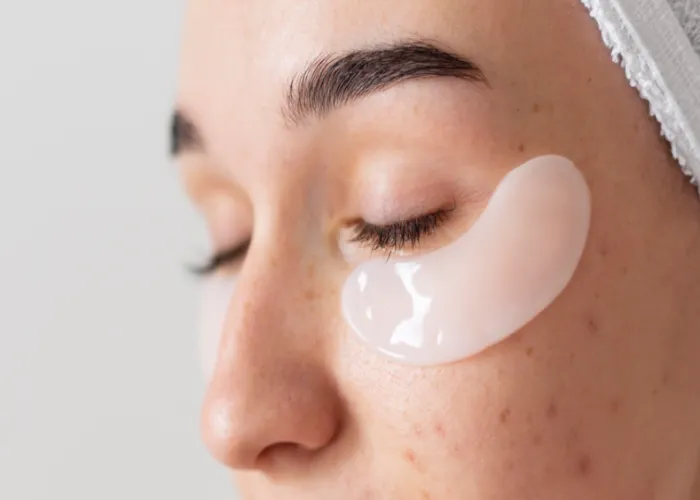Natural Retinol vs. Synthetic Retinol: How To Know What Is Best

Introduction
Retinol is one of skincare’s most celebrated ingredients, known for its powerful anti-aging and skin-renewing abilities. But within the retinol world, there’s an ongoing debate: natural vs. synthetic—what’s the better choice?
So, how do you decide if natural or synthetic retinol will work best for you? Let’s break down the benefits, drawbacks, and key differences so you can make the best choice for your skin.
Natural Retinol: Results Without Irritation
Natural retinol refers to plant-based alternatives that mimic the benefits of traditional synthetic retinol but with a gentler approach. Unlike synthetic versions, which are derived from vitamin A and can cause irritation, natural retinol sources—like bakuchiol, rosehip oil, and carrot seed oil—offer similar anti-aging, collagen-boosting, and skin-renewing properties without the harsh side effects. Many people turn to natural retinol because it helps smooth fine lines, even out skin tone, and promote elasticity while remaining hydrating and suitable for sensitive skin.
Additionally, natural retinol alternatives are often packed with antioxidants and nourishing compounds, making them a great choice for those looking to reduce wrinkles while supporting overall skin health in a more holistic, eco-friendly way.
Benefits of Natural Retinol
Natural retinol alternatives are perfect if you want results without irritation. Here’s why people love them:
✔️ Gentle on Sensitive Skin – If regular retinol makes your skin red and flaky, natural options are much milder.
✔️Hydrating and Soothing – Naturally nourish and moisturizes the skin. This helps keep skin soft and balanced to avoid the dryness that synthetic retinol can cause.
✔️No Harsh Adjustment Period – Synthetic retinol often leads to peeling and purging which can cause redness and peeling. Natural alternatives work at a slower, steadier pace.
✔️ Gentle on Sensitive Skin – Natural options are much milder than synthetic retinol, making them ideal for those prone to irritation.
✔️ Safe for Pregnancy & Breastfeeding – Unlike synthetic retinol, most plant-based options are safe to use during pregnancy.
✔️ Eco-Friendly & Clean Beauty Approved – Many natural retinol sources come from sustainable, plant-based ingredients.
✔️ Rich in Antioxidants – Natural retinol alternatives often come with additional skin-boosting benefits, like protecting against environmental damage and reducing inflammation.
✔️Works Well with Other Ingredients – You don’t have to worry about mixing it with acids or vitamin C—it’s a low-risk option for layering skincare.
✔️ More Affordable: Natural retinol alternatives are often cheaper than synthetic retinol, making them a budget-friendly option for skincare.
Drawbacks of Natural Retinol
Natural doesn’t necessarily mean better—it depends on what you’re looking for. Here are some common downsides:
❌ Slower Results – While effective, natural retinol alternatives take longer to deliver noticeable skin improvements.
❌ Less Potent – They can mimic synthetic retinol’s benefits, but they don’t work as aggressively—especially for deep wrinkles or acne.
❌ Limited Research – Some natural ingredients lack large-scale scientific studies to support their claims.
❌ Doesn’t Offer Prescription-Level Strength – If you need serious skin transformation, natural retinol might not be enough.
Synthetic Retinol: The Powerhouse Ingredient
Benefits of Synthetic Retinol
Dermatologists love synthetic retinol because it delivers visible, dramatic results. Here’s why it’s considered a gold standard:
✔️ Proven to Boost Collagen & Reduce Wrinkles – One of the most scientifically backed anti-aging ingredients, helping to firm skin and smooth fine lines over time.
✔️ Faster Results: You’ll see changes within weeks, unlike natural retinol, which takes months.
✔️ Fades Hyperpigmentation & Acne Scars: Speeds up cell turnover to reduce dark spots and uneven skin tone.
✔️ Unclogs Pores & Fights Acne: Great for preventing breakouts and keeping skin clear.
✔️ Hyperpigmentation Reduction: Retinol can fade dark spots, sunspots, and melasma by inhibiting melanin production. It evens out skin tone and brightens complexion.
✔️ Comes in Different Strengths: You can start with a gentle formula and work up to prescription-strength versions.
✔️ Extensive Scientific Research: Synthetic retinol is clinically proven and trusted by skincare professionals worldwide.
✔️ Enhanced Product Absorption: When used in a skincare routine, synthetic retinol enhances the absorption of other products, such as serums and moisturizers.
Drawbacks of Synthetic Retinol
While powerful, synthetic retinol isn’t for everyone. Here’s why some people avoid it:
❌ Can Cause Irritation: Redness, peeling, and dryness are common, especially in the beginning.
❌ Requires Sun Protection: Retinol makes skin extra sensitive to the sun, so daily SPF is a must.
❌ Not Safe for Pregnancy or Breastfeeding: Doctors recommend avoiding synthetic retinol during pregnancy due to potential risks.
❌ Strong Formulas Can Be Overwhelming: If used too frequently or incorrectly, it can damage the skin barrier and cause dryness.
❌ Cost: high-quality synthetic retinol products can be costly; however, they are often worth the investment.
So, Which One Is Best?
Honestly, it comes down to your skin type, tolerance, and goals.
🌿 Choose natural retinol if you have sensitive skin, prefer a gentler, plant-based option, or want a hydrating alternative.
💊 Choose synthetic retinol if you want faster, more dramatic results, are targeting deep wrinkles or acne scars, or prefer scientifically proven formulas.
No matter which route you go, CONSISTENCY IS KEY! Give your skin time to adjust, always wear SPF, and moisturize to keep your skin happy.
Conclusion
Both natural and synthetic retinol have their place in skincare, each with unique benefits and drawbacks. If you’re new to retinol, a natural option might be the perfect way to ease in without irritation. But if you’re looking for maximum anti-aging power, synthetic retinol is scientifically proven to deliver results fast.
At the end of the day, the best choice is the one that works for YOUR skin—so listen to it, start slow, and enjoy the glow!




🗨️ Reader Comments